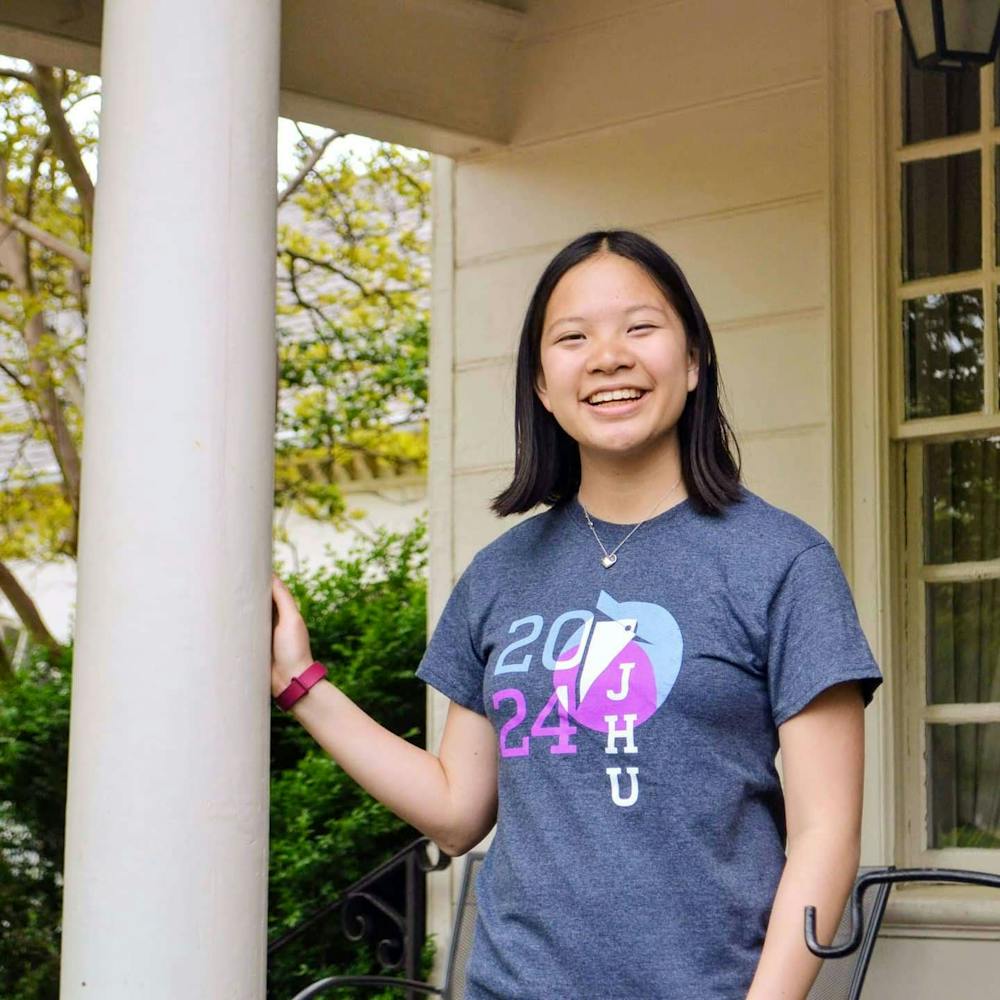Cochlear Americas awarded freshman Zandy Wong the Anders Tjellström Scholarship based on her academic achievement, leadership and community involvement. This scholarship awards students $2,000 a year to help cover school-related expenses.
Of 130 individuals who applied for Cochlear scholarships, only eight were selected; five won the Graeme Clark Scholarship, and Wong and two others won the Anders Tjellström Scholarship.
Wong applied for it in the fall of 2020 at the advice of Caroline Yuk, a previous Cochlear scholarship awardee and a friend in the Hopkins Neuroscience Scholars Program. The program mentors undergraduates from underrepresented or hard-of-hearing backgrounds seeking to enter PhD programs in neuroscience.
“Having a support net encouraged me to apply,” Wong said in an interview with The News-Letter. “[Yuk] really inspired me to apply and gave me a lot of good advice.”
For Wong, this scholarship was an affirmation of her future goals. It is a testament to her passion and dedication to create a lasting impact for those who are hard of hearing.
“This scholarship really affirmed that I’m on the right path to whatever I want to achieve in life,” she said. “I’m really grateful for it because it allows me to continue my education at Hopkins.”
Wong was born with oval window atresia, which is a middle ear bone anomaly that results in difficulty hearing. While her inner ear is functional, the vibrations that register as sound don’t make it past her middle ear to be picked up by the auditory nerve.
“A tiny part of my oval window is missing. About 90% of the hearing in my left ear has never been there,” she said.
According to the World Report on Hearing recently published by the World Health Organization, the ability to hear impacts an individual on multiple levels. Hearing loss affects not only communication and cognition but may also lead to social isolation and loneliness.
Wong recounted how her inability to hear has negatively affected her schoolwork and social life.
“I had trouble participating in group activities because there were so many different voices coming at me,” she said. “I couldn’t figure out what was going on.”
Specifically, Wong highlighted the difficulty of not knowing what sounds were supposed to sound like even with the help of a regular hearing aid.
“It was hard for me to find my voice in the classroom; no one took me seriously because my speech was so gibberish,” she said. “I couldn’t really say the sh, r, ch or th sound.”
At 12 years old, Wong underwent surgery to get a bone-anchored hearing aid (BAHA) implant, which is a device that uses the body’s natural ability to conduct sound that skips over the damaged parts of the outer and middle ear. This improved her quality of life tremendously.
“It really helped me gain a lot of agency and confidence to do things I never dreamed that I could do,” she said. “I got really involved in my school after that.”
Now Wong works with Amanda Lauer, an associate professor of otolaryngology at the School of Medicine, to research hearing loss in aging mice. Her work last semester involved performing coding tests and working with algorithms to help improve how the lab analyzes their data from their mice.
“My lab studies how hearing loss affects the brain stem,” Lauer said in an interview with The News-Letter. “We use mouse models to try to understand the relationship between structural changes and the functional changes in hearing.”
This semester, Wong is in the lab collecting data from the mice. These data shed light on how the brain prioritizes sound when there is background noise.
“We wanted to know how those two factors interact to affect hearing in complex environments, such as when there’s background sounds competing with the sound you're supposed to be listening to,” Lauer said. “They’re noninvasive physiology tests that can be done in animals where it's kind of hard to ask them what they heard.”
Wong noted that one of her major long-term goals is to help those affected with hearing loss, whether that be as a researcher or practicing clinician. It is anticipated that by 2050 around 2.5 billion people, or around one in every four people, will have some level of hearing loss.
Wong explained that the pandemic has exacerbated the difficulties that many hard-of-hearing people face. Face masks have proved to be an obstacle for those who rely on lip reading and facial cues to understand others.
“I have in-person PILOT for calculus this semester, and while it’s only a class of seven and one PILOT leader, it was really hard for me to understand what was going on in the classroom,” Wong said.
The Centers for Disease Control and Prevention recommends teachers and students wear clear masks. It can improve accessibility for all people, not only those with hearing loss.
“I’ve worked with Disability Services to get clear masks,” she said. “I can now see their lips while they’re talking because it sounds kind of muffled when it comes from the back.”
Wong is passionate about disability advocacy and inclusion. At Hopkins, she plans to continue to bring awareness to these communities and empower those with hearing loss.
“A big part of my time at Hopkins is making the best of it, and the resources we have to work towards being more inclusive to those with disabilities is really great,” she said. “I’m excited to contribute to the effort.”

















